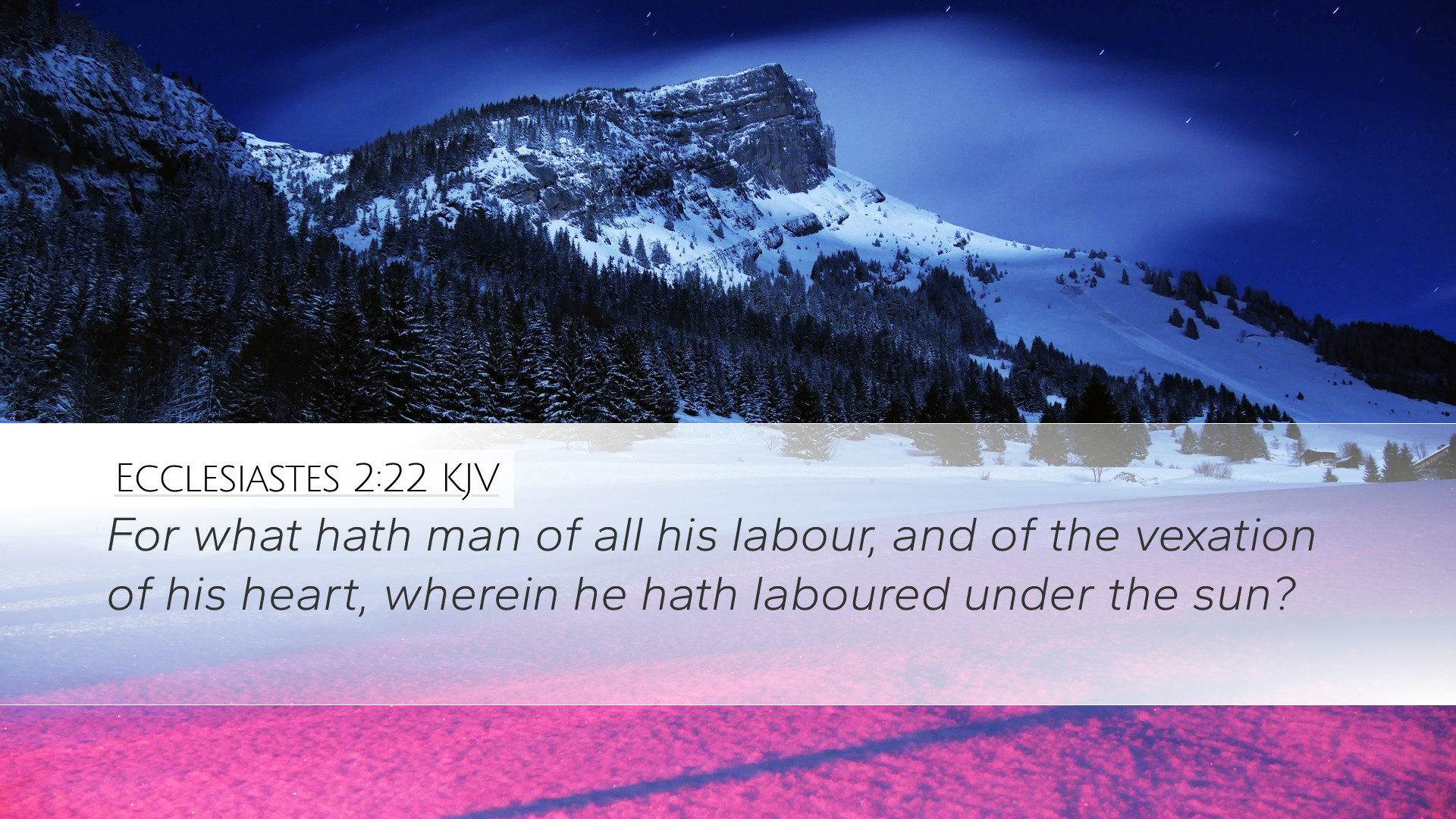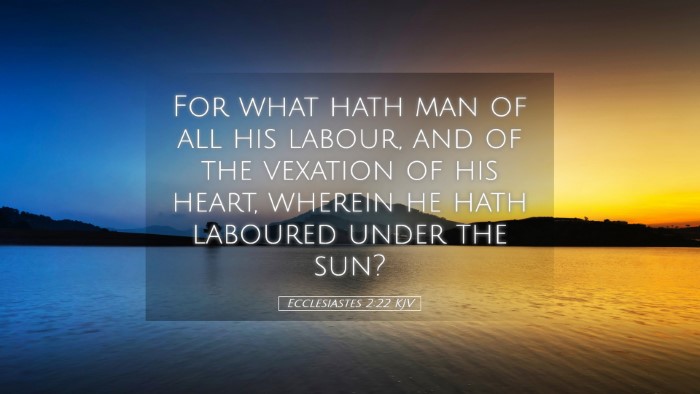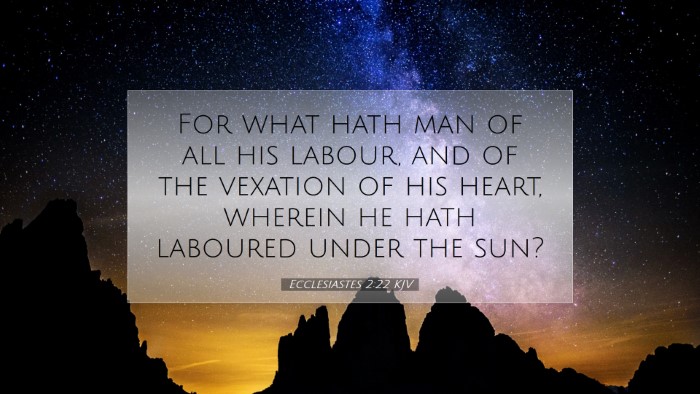Ecclesiastes 2:22 - Bible Commentary
"For what hath a man of all his labour which he taketh under the sun?" - Ecclesiastes 2:22
This verse encapsulates a profound existential inquiry that resonates throughout the book of Ecclesiastes. Various public domain commentaries offer deep insights into the significance and implications of this question, diving into the nature of human labor, the pursuit of meaning, and the ultimate futility perceived by the author, traditionally known as Qoheleth. Below, we synthesize key thoughts from Matthew Henry, Albert Barnes, and Adam Clarke.
Matthew Henry's Commentary
Matthew Henry articulates the overarching theme of vanity and the dissatisfaction that often accompanies human endeavor. He highlights that the phrase “what hath a man” reflects the futility of earthly pursuits when detached from divine purpose.
- The Burden of Labor: Henry points out how labor, though necessary, can lead to weariness without spiritual fulfillment. The toil under the sun becomes an empty cycle if it does not align with God’s will.
- The Futility of Accumulation: He discusses the reality that, at the end of life, one cannot take their earthly gains with them. This emptiness affects not only what we possess but also our legacy and what we leave behind.
- Joy in Labor: Despite the grim outlook on toil, Henry suggests that true joy in work can derive from a sense of divine purpose and community, emphasizing that our labor should be directed towards God’s glory.
Albert Barnes' Commentary
Albert Barnes approaches this verse with a focus on the transient nature of life's pleasures and achievements.
- Life’s Transience: Barnes emphasizes that life is transient and fleeting. Therefore, the labor and striving of man under the sun may ultimately lead to despair, as material gains do not last.
- The Search for Significance: He notes that the quest for significance often leads individuals to a state of disillusionment when they realize that their efforts may yield no lasting result. This reflects the larger existential question of the purpose of life and work.
- Call to Reflection: Barnes encourages readers to reflect on their motivations for labor and to seek a higher purpose beyond mere self-interest.
Adam Clarke's Commentary
Adam Clarke provides a thorough analysis that interlaces philosophical reflection with practical insights.
- Philosophical Reflection: Clarke underscores the philosophical intricacies of this verse, suggesting that the question raised is one of the most serious and profound inquiries of human existence.
- Inherent Inequity: He argues that many labor tirelessly, yet reap little reward. This inequity exemplifies life's unpredictability and calls into question the fairness of human efforts in relation to divine providence.
- Encouragement of Wisdom: Clarke encourages believers to pursue wisdom and understanding, suggesting that knowledge and insight provide a value that transcends labor which can be rendered futile.
Concluding Thoughts
Ecclesiastes 2:22 serves as a sobering reminder to pastors, students, theologians, and Bible scholars of the limitations of human effort when it is divorced from eternal significance. The labor under the sun can feel burdensome and futile; however, grounding our pursuits in a relationship with God redefines the value of our work.
Each commentator brings a unique perspective, weaving together a comprehensive understanding of the text. The insights from Henry, Barnes, and Clarke invite us to contemplate the meaning of our labor, urging us to seek wisdom and purpose that transcends earthly gains.


